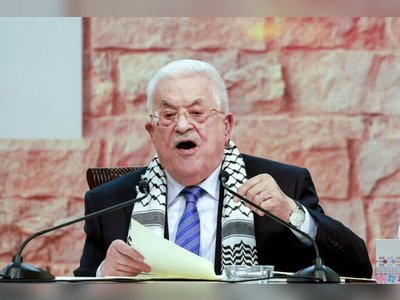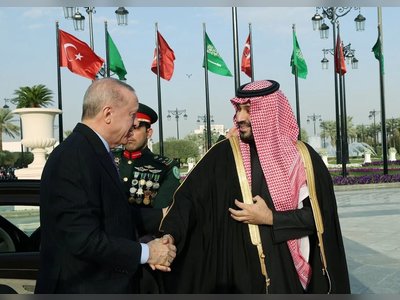
Israel and Hamas Agree to Ceasefire and Hostage Release
A highly anticipated agreement signals a possible end to the Gaza conflict, with hostages, including Americans, scheduled for release.
Hamas and Israel have agreed to a six-week ceasefire to halt the fighting in Gaza, as confirmed by mediators from the U.S. and Qatar on Wednesday.
Part of the agreement involves the release of dozens of hostages, including some Americans, aiming to end the 15-month conflict that has severely impacted the region.
Israeli Prime Minister Benjamin Netanyahu has not yet officially approved the deal, but U.S. President Joe Biden has expressed his satisfaction with the progress following months of rigorous negotiations.
Biden, who initially proposed this deal's framework in May, commended both the Trump and Biden administrations for their roles in reaching the agreement.
The ceasefire is set to begin on Sunday, with Israel pulling its troops out of Gaza and increasing humanitarian aid to the area.
During the 42-day period, Palestinian prisoners will also be released, and discussions will continue towards a lasting resolution to the conflict.
Despite Netanyahu’s pending approval, some Cabinet members may oppose the deal, with tensions within his coalition posing challenges for final approval.
A previous attempt at a ceasefire fell apart due to unresolved key details. This deal represents a significant breakthrough in a year of challenging diplomacy, as talks frequently stalled with U.S. officials advocating for a resolution.
The U.S. played a crucial role in coordinating the negotiations, with Trump’s team contributing in the final phases.
Although Netanyahu has supported the idea of releasing hostages, he has not yet agreed to the broader ceasefire terms.
The outcome of Israel’s Cabinet vote will decide whether the ceasefire is implemented or negotiations will resume.
Part of the agreement involves the release of dozens of hostages, including some Americans, aiming to end the 15-month conflict that has severely impacted the region.
Israeli Prime Minister Benjamin Netanyahu has not yet officially approved the deal, but U.S. President Joe Biden has expressed his satisfaction with the progress following months of rigorous negotiations.
Biden, who initially proposed this deal's framework in May, commended both the Trump and Biden administrations for their roles in reaching the agreement.
The ceasefire is set to begin on Sunday, with Israel pulling its troops out of Gaza and increasing humanitarian aid to the area.
During the 42-day period, Palestinian prisoners will also be released, and discussions will continue towards a lasting resolution to the conflict.
Despite Netanyahu’s pending approval, some Cabinet members may oppose the deal, with tensions within his coalition posing challenges for final approval.
A previous attempt at a ceasefire fell apart due to unresolved key details. This deal represents a significant breakthrough in a year of challenging diplomacy, as talks frequently stalled with U.S. officials advocating for a resolution.
The U.S. played a crucial role in coordinating the negotiations, with Trump’s team contributing in the final phases.
Although Netanyahu has supported the idea of releasing hostages, he has not yet agreed to the broader ceasefire terms.
The outcome of Israel’s Cabinet vote will decide whether the ceasefire is implemented or negotiations will resume.











